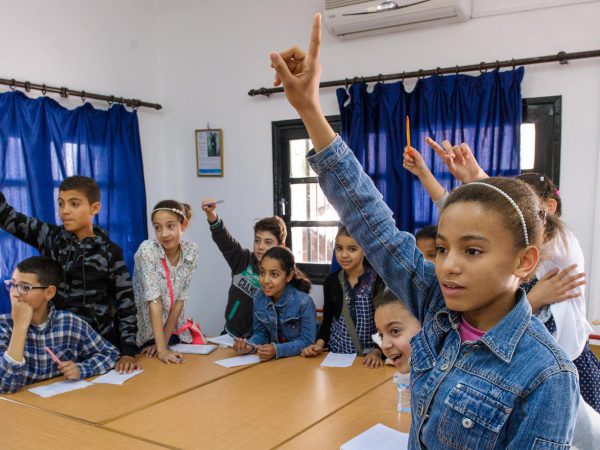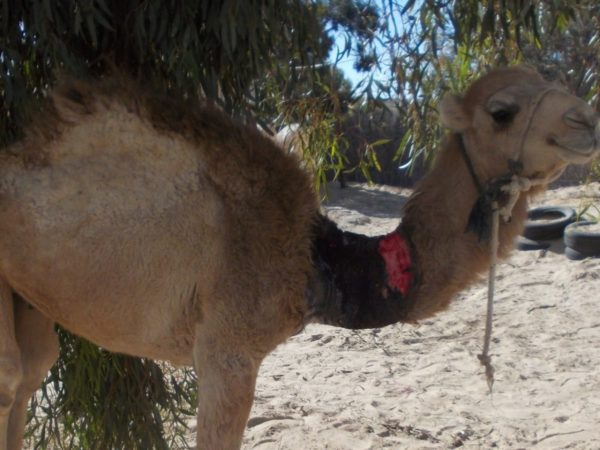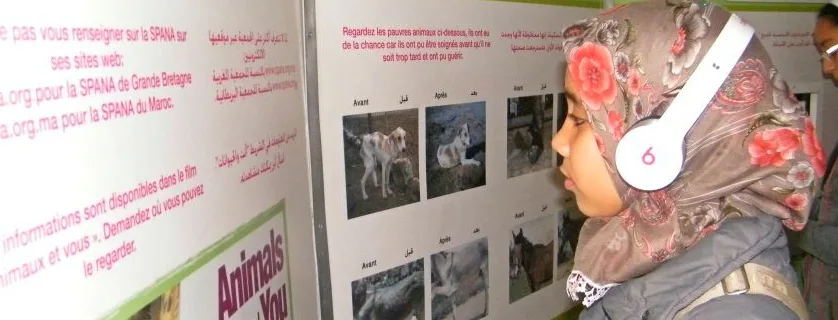
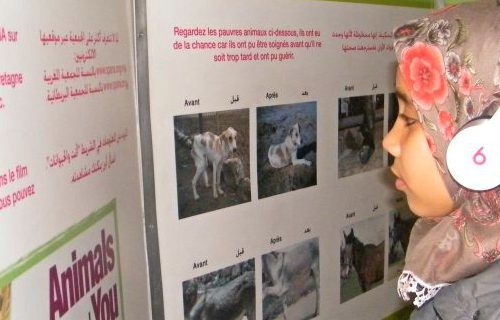
The power of prevention in Tunisia
SPANA Chief Executive Geoffrey Dennis’ reflects on preventive veterinary medicine and its life-saving impact in Tunisia
It’s so incredible to think that more than half of the medical problems our veterinarians treat throughout the world can be prevented through community training and better welfare education. With the right systems in place we can stop so much unnecessary suffering and ease the lives of millions of animals and their owners. This was very evident during my last trip to Tunisia to visit our three regional centres and mobile clinic treating thousands of working animals.
At 9:30 in the morning on my first day, the SPANA team drove the bumpy unpaved roads to reach a remote village miles from Bousalem. As most villagers don’t own mobiles, the team uses the ingenious solution of a megaphone to announce their arrival to the region. Clearly this is a lot of need for our support here as within minutes, over sixty donkeys were driven to our mobile clinic by their grateful owners. Donkey after donkey was treated for mange, harness wounds and poorly kept hooves – all conditions which cause so much pain and could have been stopped before they had even begun.
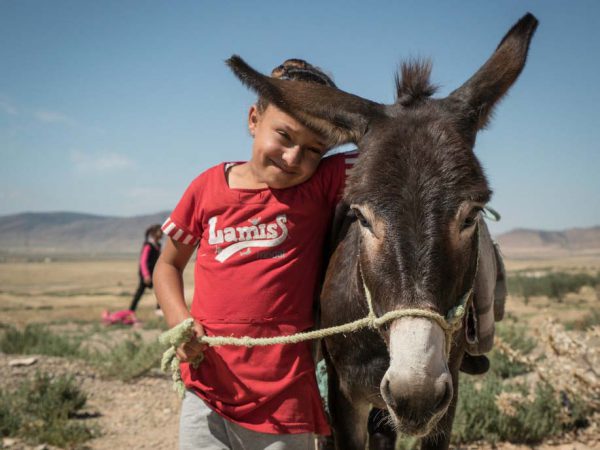
During my brief time in this community, I was struck by just how many of the cases of infection, lameness and pain were related to harness wounds. The constant rubbing of rough materials like rope and even wire against sensitive skin causes open sores that in these conditions can very easily go septic. I saw one poor donkey with an eye painfully swollen shut as a result of a poorly fitting head-collar constructed of rough rope. Thankfully, our vets were there to catch the problem, treat his painful eye and replace the collar with a more comfortable one. But equally importantly, our vets could explain to the owner in detail why the wrong equipment would only cause further issues and possible blindness if he didn’t start using the right collar.
I don’t pretend that changing community attitudes to working animals is easy. Many of these practices, like the treatment of wounds with ash for example, have been used for generations. But just as these behaviours were taught by parents to their children when they began working with animals, so too can we encourage more humane treatment to be passed down from generation to generation.
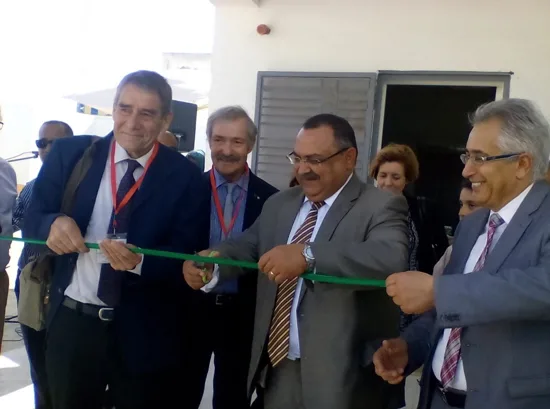
I was delighted to join our staff in celebrating the launch of our new education bus, alongside the Director General of the Ministry of Education Mr Kamel Hajem. This bus will travel the length of Tunisia, stopping to deliver animal welfare classes and hand-on exhibits to children living in some of the most rural communities in the country.
I’m very excited about the bus and what it represents for the SPANA education team in Tunisia. I’ve seen how big an impact our education centres have on young children who come to learn about animal welfare. They are taught important information like that animals feel pain and can be more helpful to their families when they’re in better shape. The fact that we can continue to spread these messages across more of North Africa is a brilliant example of how we’re continuing to pass our critically important message to the next generation.
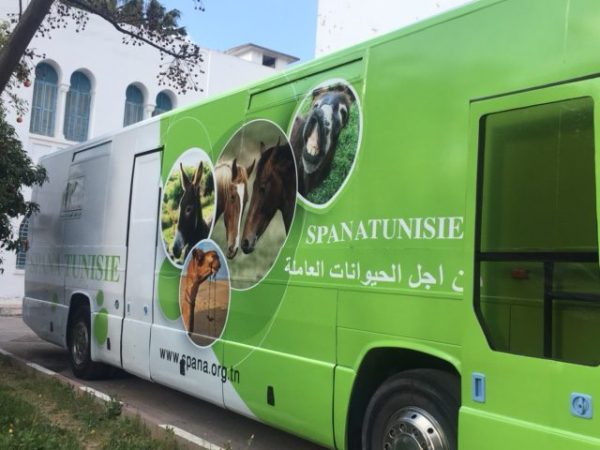
I sincerely believe that the vast majority of communities and children are not deliberately cruel to animals; they simply don’t understand the right way to treat them. The key is to equip people with the knowledge and understanding to make sure we can stop animal suffering before it starts. In Tunisia, I am seeing these measures making very real and profound changes to the health and happiness of the country’s working animals and I look forward to continuing to further our impact here.

